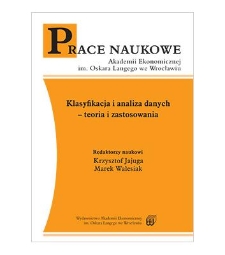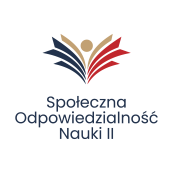Dolnośląska Biblioteka Cyfrowa udostępnia 110 240 obiektów cyfrowych
Obiekt
Tytuł: Droga Polski do Unii Gospodarczej i Walutowej - perspektywy, szanse i zagrożenia
Tytuł odmienny:
Poland's Way to EMU - Prospects, Risks and Chances
Autor:
Ringhut, Eric ; Gerlach, Philipp
Opis:
Prace Naukowe Akademii Ekonomicznej we Wrocławiu; 2005; nr 1056, s. 62-93
Abstrakt:
Wydawca:
Wydawnictwo Akademii Ekonomicznej im. Oskara Langego we Wrocławiu
Miejsce wydania:
Data wydania:
Typ zasobu:
Identyfikator zasobu:
Język:
Powiązania:
Prace Naukowe Akademii Ekonomicznej im. Oskara Langego we Wrocławiu; 2005; nr 1056 ; Rozszerzenie Unii Europejskiej na Wschód - aspekty ekonomiczne : (ze szczególnym uwzględnieniem Polski)
Prawa:
Wszystkie prawa zastrzeżone (Copyright)
Prawa dostępu:
Dla wszystkich w zakresie dozwolonego użytku
Lokalizacja oryginału:
Uniwersytet Ekonomiczny we Wrocławiu
Źródło finansowania:
Tytuł publikacji grupowej:
Prace Naukowe Akademii Ekonomicznej im. Oskara Langego we Wrocławiu
Kolekcje, do których przypisany jest obiekt:
- Dolnośląska Biblioteka Cyfrowa > Zasoby > 2. Czasopisma > Czasopisma współczesne
- Dolnośląska Biblioteka Cyfrowa > Dziedziny nauki > 5. Nauki społeczne
- Dolnośląska Biblioteka Cyfrowa > Uczestnicy Konsorcjum > 04. Uniwersytet Ekonomiczny we Wrocławiu > Czasopisma wydawane przez Wydawnictwo UEW > Prace Naukowe Akademii Ekonomicznej we Wrocławiu
Data ostatniej modyfikacji:
6 gru 2024
Data dodania obiektu:
4 gru 2024
Liczba wyświetleń treści obiektu:
34
Wszystkie dostępne wersje tego obiektu:
https://dlibra.kdm.wcss.pl/publication/167704
Wyświetl opis w formacie RDF:
Wyświetl opis w formacie OAI-PMH:
| Nazwa wydania | Data |
|---|---|
| Droga Polski do Unii Gospodarczej i Walutowej - perspektywy, szanse i zagrożenia | 6 gru 2024 |

























